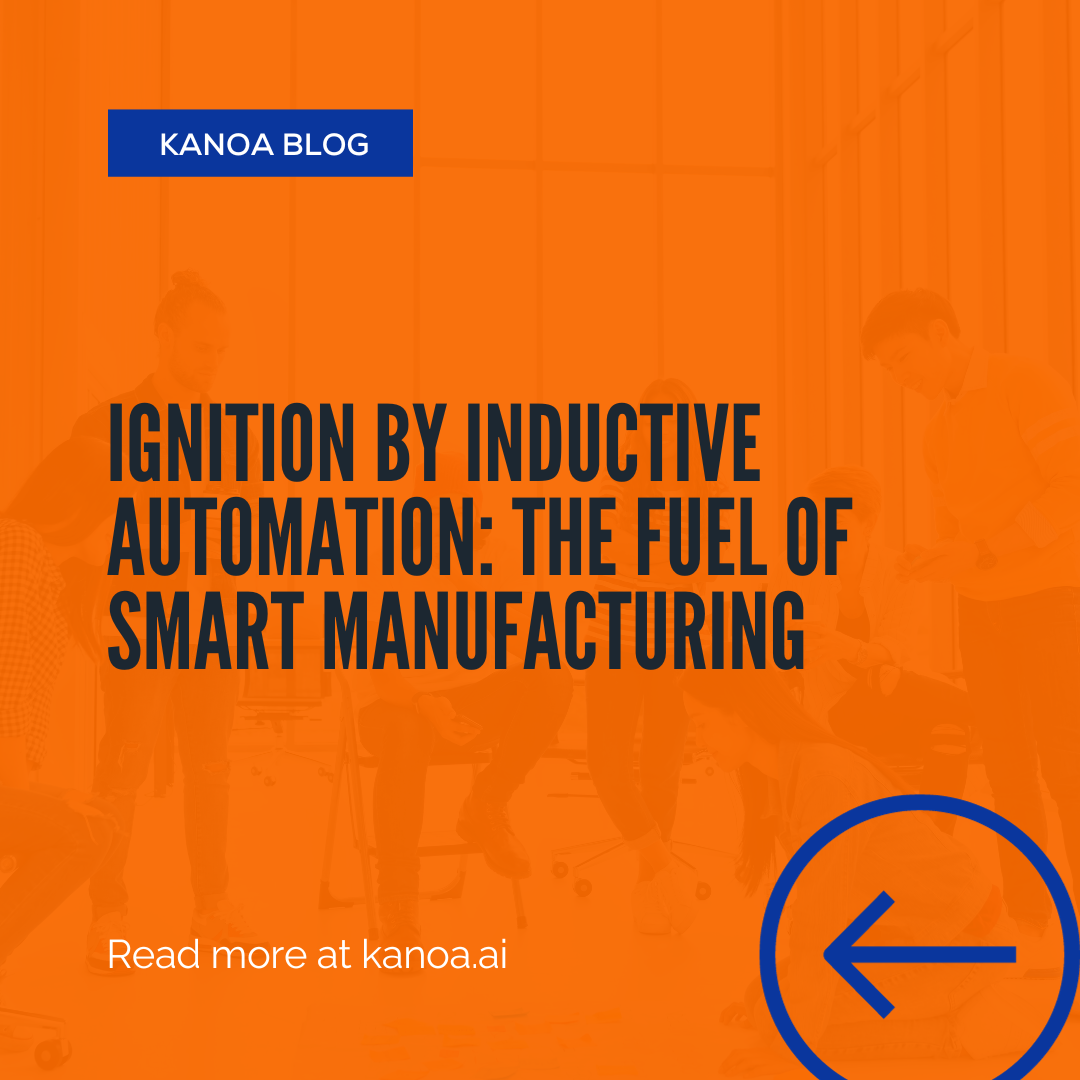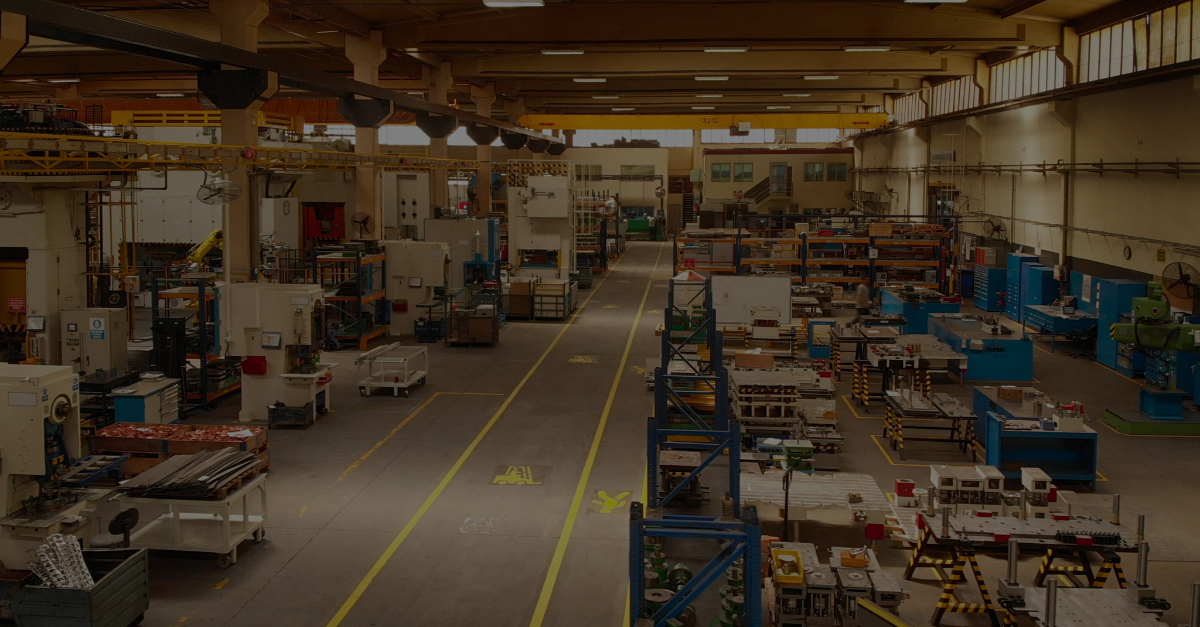Unlocking New Horizons: Integrating MES with AI
The Rise of AI in Manufacturing: A Data-Driven Revolution
The manufacturing industry is standing at the brink of a revolution, powered by Artificial Intelligence (AI). At Kanoa, we understand that the key to unlocking AI's potential lies in data - structured, interpretable, and actionable data. Our Manufacturing Execution System (MES) is designed not just to collect data, but to refine it, turning raw, unstructured machine outputs into valuable insights about performance and production.
The Necessity of Cloud Connectivity for AI
In the rapidly advancing field of AI-driven manufacturing, cloud connectivity stands out as a crucial requirement, overshadowing the capabilities of on-premise servers. This preference stems from several key factors inherent to cloud computing: scalability, processing power, and continuous improvement. Cloud platforms offer virtually unlimited scalability, accommodating the immense data volumes generated in modern manufacturing without the physical and logistical constraints of on-premise servers. Moreover, the sophisticated AI algorithms demand significant computational power, which cloud infrastructures can provide more efficiently and cost-effectively than most on-site setups. This ensures that AI models are not only run effectively but can also evolve and improve over time with access to ever-growing datasets and computational resources. Additionally, cloud platforms facilitate seamless updates and enhancements to AI models, ensuring that manufacturing processes remain at the cutting edge of technology. In contrast, on-premise servers often lack this level of flexibility and capability for rapid advancement, making cloud connectivity an indispensable element for harnessing the full potential of AI in manufacturing.
However, the integration of cloud technology in manufacturing is not without its challenges, particularly when it comes to cybersecurity.
The Cybersecurity Conundrum
The increased flow of data between the plant floor and cloud-based servers presents a significant risk. Cyber threats, ranging from data breaches to malicious attacks, can lead to severe consequences, including operational disruptions and compromised sensitive information.
Cybersecurity Risks in Cloud-Connected Manufacturing
- Data Interception: As data travels to and from the cloud, it becomes vulnerable to interception by unauthorized entities.
- Unauthorized Access: Cloud systems, if not properly secured, can be accessed by hackers, leading to data theft or manipulation.
- System Vulnerabilities: Cloud platforms may have inherent vulnerabilities that can be exploited, affecting the integrity of the manufacturing data.
Managing Cybersecurity Risks: High-Level Strategies
Despite these risks, with the right strategies, manufacturers can securely harness the power of cloud-connected AI.
- Robust Encryption: Implementing strong encryption protocols for data in transit and at rest can significantly reduce the risk of interception and unauthorized access.
- Access Control: Strict access controls and authentication protocols ensure that only authorized personnel can access sensitive data.
- Regular Security Audits: Conducting regular audits and updates can identify and rectify vulnerabilities in the system.
- Employee Training: Educating staff about cybersecurity best practices helps in mitigating risks due to human error.
- Collaboration with Trusted Cloud Providers: Partnering with reputable cloud service providers ensures you benefit from their expertise in maintaining a secure cloud environment.
The Role of MES in AI-Driven Manufacturing
MES software, like Kanoa's, plays a pivotal role in this ecosystem. By serving as the primary interface between manufacturing operations and cloud-based AI applications, MES software can significantly streamline and secure data exchanges.
Providing Structured Data in Context
AI thrives on structured, contextual data. Kanoa MES excels in extracting meaningful information from the plethora of data generated on the factory floor. By providing AI systems with data that is already processed and contextualized, MES reduces the complexity and computational load on the AI algorithms, allowing for more efficient and accurate analyses.
A Single Data-Exchange Point
Having a centralized system for data exchange, like an MES, minimizes the number of access points to the network, thereby reducing the cybersecurity risk. It acts as a gatekeeper, ensuring that only validated, necessary data is sent to and received from the cloud. This not only streamlines data management but also provides a single point of control for implementing cybersecurity measures.
Opportunities and Value Propositions
As the manufacturing landscape evolves, the integration of Kanoa MES with AI opens a realm of opportunities, transforming how factories operate and compete. This synergy promises not just incremental improvements but a fundamental shift in manufacturing intelligence and efficiency.
1. Optimization of Plant Scheduling
- Enhanced Efficiency: AI algorithms can analyze data from Kanoa MES to optimize production schedules, balancing workloads and resources more effectively.
- Dynamic Adaptation: The system can predict and adjust to changes in demand, supply chain disruptions, or equipment availability, ensuring continuous optimization.
- Reduced Wastage: Optimal scheduling minimizes idle times and resource wastage, leading to cost savings and environmental benefits.
2. Downtime Pattern Recognition and Predictive Maintenance
- Minimizing Downtime: By recognizing patterns leading to equipment failures, AI can predict and preempt downtime, scheduling maintenance before breakdowns occur.
- Extended Equipment Life: Predictive maintenance extends the life of machinery by preventing excessive wear and tear.
- Cost Savings: Reducing unplanned downtime and maintenance costs can significantly impact the bottom line.
3. Quality Control and Process Improvement
- Enhanced Product Quality: AI can analyze data to identify factors affecting product quality, enabling manufacturers to fine-tune processes for optimal outcomes.
- Process Optimization: Continuous analysis leads to the discovery of inefficiencies and process improvements, contributing to better resource utilization and output quality.
4. Energy Consumption Optimization
- Reduced Energy Costs: AI can analyze energy usage patterns, helping to identify and implement more efficient energy practices.
- Sustainable Manufacturing: Optimizing energy use contributes to a more sustainable operation, aligning with environmental goals and regulations.
5. Customized Production and Agile Manufacturing
- Flexibility in Production: AI enables manufacturers to adapt quickly to customized product demands, reducing lead times and improving customer satisfaction.
- Agile Response to Market Trends: Rapid adaptation to changing market trends keeps manufacturers competitive and responsive to customer needs.
The Kanoa MES Advantage
The strength of Kanoa MES in this integration lies in its ability to provide clean, structured, and context-rich data. This data is the lifeblood of AI algorithms, enabling them to deliver accurate, actionable insights. Moreover, Kanoa MES's intuitive interface and seamless integration capabilities make the adoption of AI a smoother transition for manufacturers.
Conclusion: A Future-Ready Manufacturing Ecosystem
The integration of Kanoa MES with AI is not just a technological upgrade; it is a strategic move towards building a more resilient, efficient, and competitive manufacturing sector. This synergy offers manufacturers a chance to not only keep pace with the industry’s evolution but to be at the forefront of it. The possibilities are vast, and the potential gains are substantial, marking an exciting new chapter in the realm of smart manufacturing.
You May Also Like
These Related Stories
%20(10).png)
Kanoa at ICC 2025 - Levelling Up and Proving It

Ignition by Inductive Automation: The Fuel of Smart Manufacturing


No Comments Yet
Let us know what you think